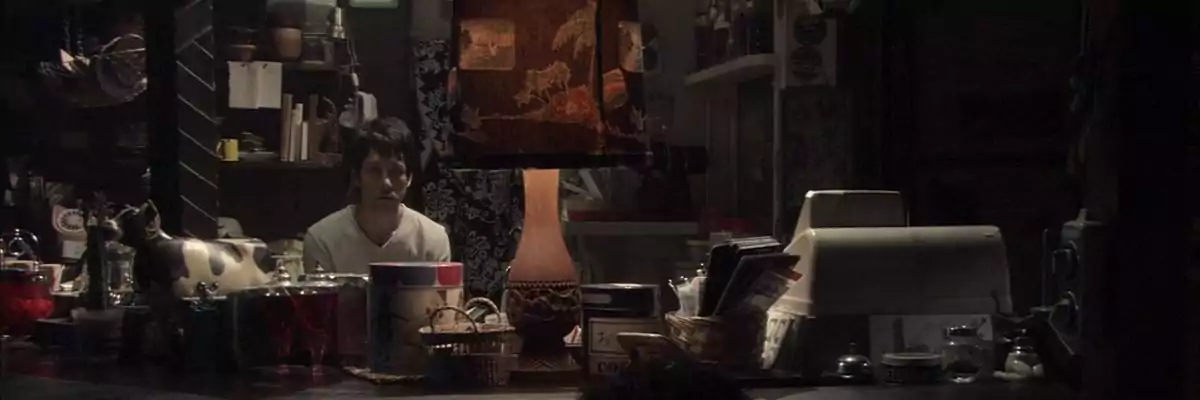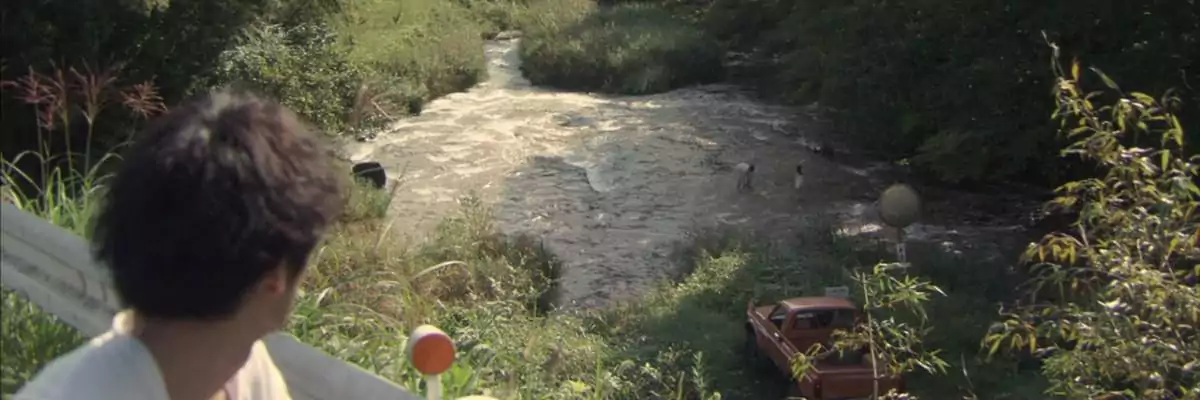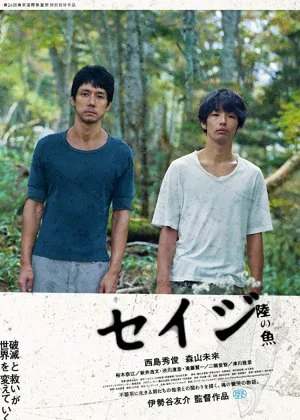House 475
It's always a little sad to see young talent being ignored. Yusuke Iseya may have made a name for himself as an actor, his directorial efforts are passing the world by mostly unnoticed. Needless to say I was pretty excited when I got the chance to catch up with Iseya's second feature film, Seiji: Riku no Sakana [House 475]. In its core a somewhat traditional Japanese drama, but featuring modern touches to spruce things up a little. The result was far from disappointing.

Iseya's acting career has been one of mostly highlights. From his very first part in Koreeda's Wandafuru Raifu to the indie greats of Sogo Ishii's Dead End Run and the mainstream success of Casshern, Iseya has always an eye for stand-out cinema. He's still young though and making it as a young writer/director can be a serious challenge. Iseya's first (Kakuto - 2003) was a very promising film, but it would take him eight years to finally produce a follow-up.
House 475 (literally Fish on Land) feels like a film from a director who matured considerably, but still managed to keep part of his youthful enthusiasm alive. Stylistically the film aligns with what you'd expect from a (serious) Japanese drama, but there's also enough room for lighter moments. Some playful camerawork and quirkier characters betray Iseya's age and background, but they do add some welcome flavor to the film, setting it apart from its peers.
The film starts with Boku remembering his bike trek across Japan. Back then his journey came to a sudden halt when he crashed his bike into Kazuo's van. Luckily Kazuo was kinder than his scoundrel looks let on and he was willing to take Boku to a nearby inn. That's where Boku met with Shoko and Seiji, the peculiar tennants of the inn. He decided to halt his journey to stick around, while getting to know the people living in the area.

Visually Iseya has everything under control. The foundation of the film's visual identity is taken from Japan's traditional dramas, with beautifully framed shots, a toned down color scheme and subtle camera work, slowly easing the audience into the film. But there's also room for a little visual intensity, with several impressive close-up scenes and some fun editing tricks livening up the frame. It's a strong, balanced combination that feels like a logical evolution.
The soundtrack aims for a similar balance, but falls short. The classic drama score is up to par though, with a selection of nice piano tunes complementing the visuals. It's tried and tested territory, but it works. The modern touch comes in the form of (rock) band music, which sadly turned out to be a little underwhelming. I'm not a big fan of Japanese films doing band-related stuff in the first place, House 475 is just another example of why I prefer they'd stop doing it. It lacks identity and at times takes over the film in a way that feels like a waste of time. Luckily these moments are limited, but it's a shame nonetheless.
The cast is impeccable though. Contrary to his first film, Iseya doesn't take up the main part, in fact he doesn't even show up in front of the camera at all. Instead Hidetoshi Nishijima and Mirai Moriyama take up the leads. Both are very capable and deliver strong, moving performances. Nae and Hirofumi Arai shine in supporting roles, rounding off an excellent cast. Performances can be a little impenetrable for people not used to Japanese dramas I guess, but that's hardly the actors' fault.

House 475 is one of those films where the main character is little more than a vessel for the audience. Boku has his own path to follow and Moriyama does a great job adding a little depth to his character, but in the end he's really just a pair of eyes that allows us to spy on the relationship between Seiji and Shoko. It's an interesting approach that throws you for a loop, but it's also an approach I'm sure not everyone will appreciate, as it forces you to switch perspectives halfway through.
This may just be Iseya's second film, but it feels a lot like the work of a confident, accomplished director. It's a shame his output is a little limited in quantity right now, because I feel he would be a welcome addition to Japan's current director line-up. Even so, it's good to know Japan has people like Iseya lying around, skilled individuals with a rich career in film who can deliver the goods in front as well as behind the cameras. House 475 is a fine drama and if you like Japan's take on the genre, it's an easy recommendation.
